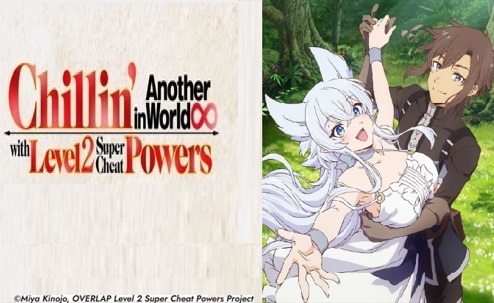Season 11 Review: Family Guy
Some Spoilers Below
Throughout most of my TV-watching lifetime, I’ve been under the impression that the phrase “jumping the shark” was a household term; common knowledge. Recently however, I met somebody – a seemingly normal, functioning member of society and avid TV fan – who had never heard of the expression.
So, if you too were apparently raised by a tribe of apes in a remote jungle far from American pop-culture civilization, allow me to fill you in. The expression references an old Happy Days three-part episode from 1977 – during the show’s fifth season – which featured a plotline involving Fonzie (a.k.a. The Fonz, Arthur Fonzarelli, Henry Winkler, Barry Zuckerkorn, etc.) accepting and successfully completing a challenge to jump over a shark while water skiing. The episode was so out there that the show’s fanbase collectively agreed at this point in the series, Happy Days was no longer the brilliant television masterpiece it once was, and thus the term “jumping the shark” evolved as a way to acknowledge when a show has passed its prime.
It’s hard to pinpoint where Family Guy first completed this unfortunate feat, but the reasons are relatively clear. First: cutaways. Family Guy is a show built on random non sequitur jokes in which the scene briefly cuts away to illustrate some kind of reference made by a character. In its prime, the show had a cutaway at least every two or three minutes, and sometimes almost a dozen per episode – they were its trademark. Without them, the show just doesn’t have the same type of humor, or the same rhythm and pace.
Plot is another factor, in a few ways. For instance: Classic episodes of Family Guy have very simple plotlines. Right? Peter finds out he’s mentally challenged. The family moves to the South. The world ends. Peter starts his own country. They do a Poltergeist spoof. Not only are these storylines easily describable, but they’re interchangeable. They also run on a non-linear timeline, and therefore when a particular episode ends, things should be back to normal. The Simpsons even pointed out that this is a good quality for any sitcom. This rings especially true for animated series, because the characters really don’t need to change at all, since they don’t have to physically age and aren’t expected to go through different stages of life.
In an effort to limit change, characters shouldn’t reveal things about themselves that would make viewers view old episodes differently. Also, things they say or do shouldn’t affect later episodes. The creators & animators have stated that they had a great time making season 9’s premier, “And Then There Were Fewer,” the mansion murder mystery episode. And why not? The animation was beautiful, the plot was complex, and it was a solidly-funny installment. But two semi-regular characters were killed off: Muriel Goldman and Diane Simmons. That meant there would be no more snarky back-and-forth between Channel 5 News Co-anchors Diane Simmons and Tom Tucker – the biggest loss. It also makes it a bit of a bummer to see Diane and Muriel in old episodes. Maybe I’m getting too attached to these fictional cartoon characters, but after over a decade of having them around I think I’m entitled to that, goddammit.
Also, when episodes such as this one have more complex plots, it detracts from the amount of jokes and humorous dialogue, simply because of the extra time it takes to either explain or show things crucial to the plot.
Additionally, a lot of plot-heavy episodes have emotional baggage attached to them. Obviously the show is still a comedy, but when plotlines revolve around regular characters being unfaithful to their partners, it can be a bit of a downer. Somehow, Family Guy pulled this off masterfully in “The Cleveland-Loretta Quagmire,” one of my favorite episodes to date. Loretta cheats on Cleveland with Quagmire, and at the end they separate – for good. Lois also cheats on Peter with Bill Clinton in “Bill and Peter’s Bogus Journey,” but it isn’t a huge part of the plot, which made it better. Well done.
But then in a season 9 episode it is revealed Carter Pewterschmidt is having an affair. Even with things going back to normal at the end, do we need another affair episode? And then, later that same season, it is also revealed that Bonnie goes away once a year to cheat on Joe. Come on now! Or, aside from infidelity, how about a storyline involving Brian almost deciding to give up his kidney – and die – to save Peter’s life?
That’s just season in 9. Season 10 also had its share of these overly-serious storylines. The hurricane episode where Meg stands up to the family and criticizes them each in deeply personal ways (“Seahorse Seashell Party”) is one example, and that’s only the season’s second episode. The next episode involved Quagmire asking Peter & Joe to help him kill his sister’s abusive boyfriend, a plan they actually execute (pun intended.) In another episode, Joe & Bonnie’s son Kevin, believed to have been killed in Iraq, returns to his family. Although the cutaways and references actually made that last one a pretty funny episode, it still was a bit too heavy at times. Carter also contemplates retiring due to his increasing age in another episode. Lois kidnaps a sick child whose parents won’t allow him to be treated due to their religious beliefs in the season’s twelfth episode.
As much as I understand the desire to address controversial or real-life issues, moments allotted to discussing these things on the show genuinely disrupt the rhythm and flow of the episode, and they’re not what initially made the series entertaining & successful. I respect what they’re attempting to do, but it’s difficult to pull off a major mood change in a 22-minute episode, and why a zany comedy show like this would even want to is beyond me.
Look, I’m not saying it’s an inherently bad idea to have episodes with realistically-serious themes, but the episodes that have been the least funny have been these very ones. A contributor to this, is that in each of these episodes inevitably there’s a moment – sometimes several – where the situation sinks in and someone has to have a realization, make a decision, and then reconcile or deal with the problem in some way. Sure, everybody moves on, but like the complex plotlines I previously discussed, emotional episodes can take away airtime from funnier dialogue. To be clear: I’m talking about more than just the “moral of the story” scenes that comedies can often have.
Though I’ve been talking a lot about seasons 9 and 10 being lousy overall, if I had to pick a moment when I think Family Guy actually jumped the shark, it would be earlier, in season 8. To clarify, that season definitely had some quality episodes. “Business Guy,” where Peter takes over Carter’s company when he goes into a coma, was a brilliant episode. Notice: comas are serious, but the episode never treated it that way. It was just a plotline, and nobody had any Lifetime moments. It was an instant classic. Especially the bit about the African-American heart monitor.
The next few episodes were a bit shaky. “Extra Large Medium,” the Down Syndrome episode, was touch-and-go; as was the one where Brian pitches a TV show idea that he gives up creative control over; and also the episode with the black hole that threatens all of humanity. These were a bit too somber, and if you look at the ratings, they’ll reflect these feelings. But it was a few episodes later, when “Brian & Stewie” aired, that for the first time in eight seasons, I can honestly say I hated an episode.
I get the point, Seth MacFarlane is a huge fan of All in the Family and he wanted to do an episode like “Archie in the Cellar,” where Archie Bunker (Carroll O’Connor) accidentally locks himself in the basement while alone for the weekend. He passes the time by drinking and recording his will, believing he’ll die before someone finds him. The episode broke from All in the Family’s usual storyline, and was almost like a one-act stage play.
“Brian & Stewie” was supposed to be like this. It featured only two characters, and dealt with dark issues involving life, death, and suicide. It also contained a very disturbing and lengthy sequence where Brian eats both the feces and vomit of Stewie. I get that dogs do that, but the whole scene was painfully long and uncomfortable to watch. Even aside from this scene (which is probably still the only FG scene that I cringe at and refuse to watch) the episode purposely lacked the show’s signature cutaways and was generally just plain unfunny. I understand that was partially the intention, but let’s be real: Family Guy is not the same type of show as All in the Family. MacFarlane has said of FG: “This is a show that has never tried to be anything more than something that makes you laugh as often and as loudly as possible within the course of a half hour.” That’s what they’re known for, not for creating serious episodes dealing with controversial issues and dark themes.
On the other hand, All in the Family – still a comedy – got political in just its second episode. And then again in its fourth. Then there was a car accident in the third one, someone comes out of the closet in the fifth, and a main character suffers a miscarriage in the sixth.
By contrast, Family Guy’s fifth episode featured Peter going on a Native American vision quest – complete with talking trees – to prove his false heritage and win back the family car that Lois gambled away at an Indian Casino. Even in the climaxes of these early episodes, or during the lesson learned, they always managed to throw a joke in at just the right time.
Where did those days go? Is it all over for one of the greatest & funniest cartoons ever made?
Well, the thing is, Family Guy didn’t quit after “Brian & Stewie.” They didn’t quit after a subpar season 9 or an even-worse season 10. If they had, we could say the show – like so many before it – jumped the shark, died dishonorably, and that’s that. This is what happens in most cases.
The only thing a show can do to save its life once it takes a nosedive, is to rebound with a successful season, and continue on. If it accomplishes this, then the poor seasons don’t represent the untimely end of a once-great show, but instead just a couple of off-years of an otherwise-stellar program. Even a die-hard fan of a near-perfect show like The Simpsons (such as myself) can admit looking back that every year wasn’t a gem. Some were brilliant start-to-finish, others were hit-or-miss, and a few are worth skipping altogether (as far as repeats go) in favor of one of the many other seasons. After last season, all Family Guy needed to achieve a status like this was a sign of life and a chance to regain its footing.
Fortunately for The Griffin family, they got the sign they needed with season 11, which just wrapped up last weekend. It was a definite improvement, to say the least. To be honest, recently I’ve been programmed to immediately opt out of watching any Family Guy episodes in syndication that begin with the newer intro. You know, the one in high-def with regular characters acting as the dancers. I think that includes anything in the ninth season or later. For the first three episodes of the eleventh season, if I didn’t see that new intro, I would’ve thought I was watching an old classic.
The laughs were big, they were frequent, they were mostly placed in cutaways, and they were full of references. Most importantly, though: they didn’t have sappy scenes or life-altering, “will everything get back to normal?!” moments (SPOILER: It almost always does.) A few episodes in season 11 tipped a bit toward this kind of a story, but not nearly as many as the past few seasons, and with little lasting effects. And hey, only one person died this season! (ADDITIONAL SPOILER: It was Horace the bartender.)
The season premier, “Into Fat Air,” actually contained a plotline that turned relatively dark at one point, with a scene involving cannibalism, but the jokes managed to keep it light throughout. And again, like any great cartoon, there were no consequences for the characters’ actions.
In the second episode, “Ratings Guy,” Family Guy improved even further, with a simple, typically-silly story: the Griffins are chosen to be a Nielsen Ratings family, and subsequently end up controlling television. From “PTV” back in season 4, we know Peter can come up with some outrageous ideas for shows. Plus, guest voices by Jon Hamm, Michael Clarke Duncan (RIP), J.J. Abrams, Mark Burnett, Dick Wolf (“Dick Wolf Wiener,” ha), and Dan Castellaneta as Homer J. Simpsons himself, also helped the show.
“The Old Man and the Big ‘C’” was another great episode, despite cancer being a major plotline, and getting a bit preachy at times. Still, it had some outstanding cutaways, the best of which may have been a Kleenex executive confiding to another that research shows the primary use of their product is sperm. And the second biggest use is women crying about nonsense. When the incredulous employee tries to say he thought it was sneezing, the other cuts him off, “Jerry, Jerry… It’s sperm and nonsense.”
I didn’t care for the time travel episode. I appreciate what they were going for, but I just don’t think it worked. An overly-complex story was the result, and it was at the expense of more jokes and cutaways. I also don’t like them messing around with old jokes, such as the ipecac vomiting sequence or AIDS barbershop quartet gag.
From there the episodes were hit-or-miss, but included some quality ones, and several well-done homages to shows like Monty Python, King of the Hill, and Modern Family. There was an episode, “Jesus, Mary & Joseph,” that was set up in a way similar to “The Griffin Family History” or the Star Wars episode. This format that puts a larger emphasis on creative story adaptation (which also includes the Stephen King “Three Kings” and “Family Guy Viewer Mail” episodes) is great in small doses, but shows that follow the regular storyline should not take the same appraoch. “Jesus, Mary & Joseph,” a religious-themed episode, also had a funny commentary on the hypnotic power of Breaking Bad, and a bit about calling an elderly relative that always talks at the same time as you do.
Season 11’s best episode, in this writer’s opinion, was number 16, entitled “Twelve and a Half Angry Men.” It was set up like Twelve Angry Men, but with a jury consisting of Peter, Brian, Quagmire, Carter Pewterschmidt, Mort Goldman, Tom Tucker, Herbert, Dr. Hartman, Seamus, Bruce, Carl, and Consuela (because that’s totally a random sample of citizens, right? Aren’t there more people in the town then just the main characters? And I don’t even think Consuela is a legal citizen.) They are all summoned to decide whether or not Mayor Adam West stabbed & killed an aide found dead on his property. But the plot isn’t what makes the episode great. In fact, if you’ll recall, West already shot (and presumably) killed a man standing on a pier while on a date with Lois’ sister Carol in season 9’s “Brothers & Sisters.” No, what truly makes this episode a success is the opportunity it has to give each of these great juror characters a chance to shine. Example: Peter objects to Brian wanting to order dog food as the jury’s dinner because, “I had that for lunch!” Also, Carl’s internal monologue about concealing the fact that he doesn’t know how to read, and a scene with Carter taking an “old man pill that looks way too big to swallow.”
Additionally, Peter has two hilarious scenes that are funny in that “how long is it going to go on?” way. These are Peter dropping his phone in the toilet and Peter attempting to adjust the window blinds. It’s funny to know Family Guy can still get laughs this way, like they did in the past with Peter skinning his knee or Stewie calling out “mom!” 50 times.
The rest of the season’s episodes are solid. “Roads to Vegas” should get a specific mention because it was the second Brian & Stewie travel episode this season, but unlike “Yug Ylimaf,” this one actually worked. The plot was complex, it involved death and some other dark themes, but it was a success in that there were no serious moments to address these situations or their consequences. Even in the episode where a series regular is killed off (Horace) the show avoids dwelling on this. In fact, Peter’s speech at the funeral was a damn riot. (“Good Afternoon, I’d just like to say: before today I didn’t know The Munsters were driving around in a funeral car. [crying] I’m beginning to think everything on that show was a big joke.”) In the end, the episode has more to do with Peter, Joe, & Quagmires’ love for the bar than anything else, and they manage to keep the mood light.
The finale, “No Country Club for Old Men,” had some great harmonica gags in the beginning, and overall it was a nice (and funny) close to an improved season.
So is does this mean Family Guy has somehow de-sharked itself? Or maybe it means the show really didn’t ever jump the shark in the first place. Perhaps it was just a temporary lull, for some reason or another.
On that note, I don’t really want to speculate too deeply why the show seemed to dip in quality for a couple of seasons. Writers come and go, some ideas are just better than others… or maybe it was due to Seth MacFarlane being stretched too thin between making Family Guy, American Dad, The Cleveland Show (or “That black version of our show,” as Stewie calls it in episode 2), and the film Ted. Who knows?
The bottom line here is that in season 11, Family Guy proved it can achieve the glory it once had. Sure, at the end of the day it only amounts to the third-worst, or maybe fourth-worst season out of 11. I’d say this time around about 75% of the jokes worked, as opposed to 25% in the previous two-and-a-half seasons, based on statistics I made up for this article. Regardless, it’s a definite improvement, and the show isn’t showing any signs of ending anytime soon. That’s especially great news for longtime fans.
So I commend Mr. MacFarlane and the rest of the Family Guy team. Overall they’ve done an absolutely amazing job so far in creating and continuing a truly revolutionary show. But before they go trying to change anything again; before they start looking to too many outside sources (like famous films, TV shows, or celebrities) for inspiration, I implore them: just don’t forget to be inspired by one very important person…
I’m referring to a Rhode Island School of Design grad and former Hanna-Barbera cartoonist who once spent six months without sleep to compile a low-budget pilot that FOX absolutely loved. A guy who produced a brilliantly funny and totally unique series for three wonderful seasons before getting canceled, only to be brought back from the dead three years later due to an unprecedented cult following and astronomically-high DVD sales. A man who has successfully made the crossover to film and also happens to be an extremely talented singer and musician. There has never been & may never be another like Seth MacFarlane. He’d should always remember that fact, and never forget at this point in his career his biggest (but not only) inspiration should still be himself, and all that he’s created and accomplished so far. After all, that’s what got him here. Because no matter how much his fame grows, or how much he uses his talents to entertain the world and keep us laughing – he’ll be doing it as his own man.
So seriously, Family Guy, cut the crap (literally, in the case of the “Brian & Stewie” episode), and please don’t make any more serious, overly-emotional episodes. That’s not what the show is about at its core, and I’ve got the quote from Seth to prove it. And although it is an equally hilarious show (if not moreso), Family Guy is not All in the Family. Each show is funny for many different reasons, and that’s the way it should be. The world doesn’t move to the beat of just one drum, and what might be right for you, may not be right for some (oh shit, now I’m getting into another show from the ‘70s.) The humor doesn’t flow the same, and the characters – though the fat husband and whiny-voiced wife in each may seem similar – are still vastly different. Lois is not Edith (Jean Stapleton). And not Peter, nor Stewie, nor Brian is the great character portrayed by Carroll O’Connor. Need proof? Try telling Archie Bunker to eat shit, you meathead.

























I'm hired!